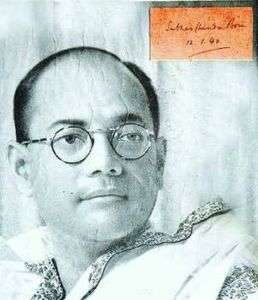Sumantra Bose
Sumantra Bose is Professor of International and Comparative Politics at the London School of Economics. He specialises in the study of ethnic and national conflicts and their management, with a particular focus on the Indian subcontinent (especially Kashmir) and the former Yugoslavia (in particular Bosnia and Herzegovina). His publications include States, Nations, Sovereignty: Sri Lanka, India and the Tamil Eelam Movement (Sage, 1994), Bosnia after Dayton: Nationalist Partition and International Intervention (Oxford University Press, 2002), Kashmir: The Roots of Conflict, Paths to Peace (Harvard University Press, 2003) and Contested Lands: War and Peace in Israel-Palestine, Kashmir, Bosnia, Cyprus and Sri Lanka (Harvard University Press, 2007).
Bose is the son of Sisir Kumar Bose a pediatrician and Krishna Bose née Chaudhuri, professor of English, writer and politician, and a grandson of Sarat Chandra Bose.[1] Sugata Bose (Gardiner Professor of Oceanic History and Affairs at Harvard University)is his elder brother and Sarmila Bose (b. 1959) is his elder sister.
Bose was educated in Indian schools, and then went to the United States for further studies. He graduated from Amherst College, Massachusetts, with a BA with highest honours in 1992, and followed that up with MA, M.Phil and Ph.D. (1998) degrees in political science at Columbia University, New York, USA.[2] In 1999, he joined the London School of Economics and Political Science, where he is now Professor of International and Comparative Politics.[3]
References
- ↑ Bose, Sumantra (2007-08-23). "The partition evasion". openDemocracy. Retrieved 2007-12-16.
- ↑ "Sumantra Bose biography" (PDF). European Parliament. Retrieved 2008-11-30.
- ↑ "Sumantra Bose". London School of Economics. Retrieved 2008-11-30.
